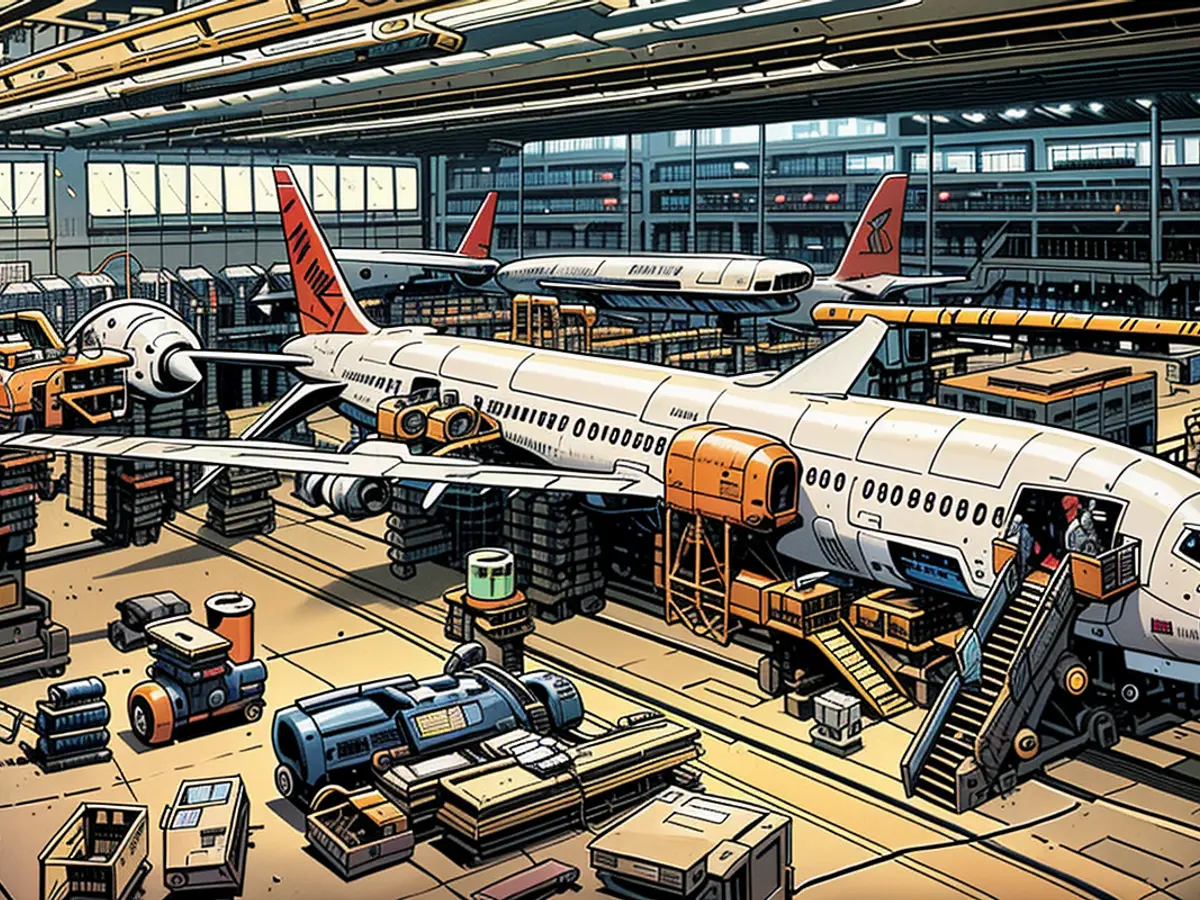Boeing expects significantly higher demand
Both Boeing and rival Airbus are reportedly anticipating rosy times. Both airplane manufacturers expect that tens of thousands of airplanes will be needed in the next few decades. Low-cost carriers in particular play a special role in development.
Boeing predicts that the aviation industry will require nearly 44,000 airplanes over the next two decades. The global fleet of passenger and cargo aircraft is expected to nearly double by 2043, according to Boeing's new long-term forecast.
Travel will have an even greater significance for people than before the Corona pandemic, said Boeing manager Darren Hulst. In addition, demand is building up because planes are being replaced later than usual due to delivery delays. On average, the fleet is about one to one and a half years older than before the pandemic.
Within a year, Boeing raised its demand forecast by about three percent. Three quarters of the required airplanes are expected to be single-aisle aircraft. Low-cost carriers played a central role in this, said Hulst. And China is expected to account for roughly half of the long-term demand.
Airbus also sees high demand
For the coming years, Boeing does not expect aircraft with new construction solutions to enter airline fleets. And even if such new planes are introduced in the next two decades, deliveries are likely to remain low, said Hulst.
Boeing's rival and largest aircraft manufacturer Airbus sees a need for more than 42,000 new planes in its latest forecast up to 2043. The European company emphasizes that these planes will replace models with higher fuel consumption.
Boeing's rival, Airbus Group, agrees with Boeing's optimistic outlook, projecting a need for over 42,000 new airplanes by 2043. This demand primarily stems from replacing older, fuel-inefficient aircraft in their fleet.
The ongoing construction of aircraft by both Boeing and Airbus is crucial for the global economy, as the aviation industry is projected to require nearly 44,000 new aircraft over the next two decades, according to Boeing.








